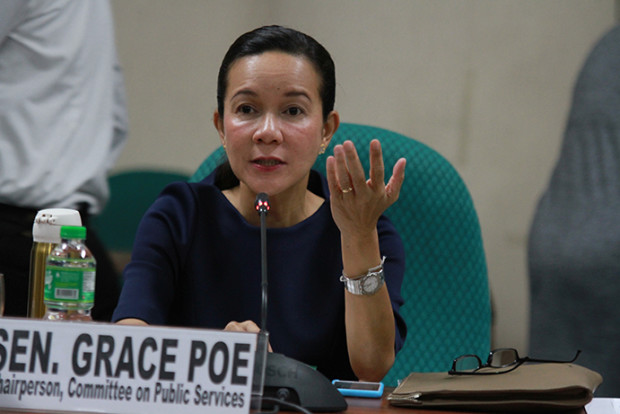The proposed Freedom of Information (FOI) is not just for the press, but more importantly, it is for the people, Senator Grace Poe said on Thursday.
“There is this presumption that FOI is purposely designed for journalists as aid in writing investigative pieces. But FOI is not just for the press, it is for the people,” Poe said when she opened the second hearing of the Senate committee on public information and mass media, which she chairs, on the FOI bill.
“Let us also ensure that the bill we will craft does empower agencies to carry out the mandate of the law. Agencies, to borrow a bureaucratic term, must be ‘capacitated’ so they can effectively organize their information management systems and allow them to observe best record-keeping practices that would enable easy access and retrieval of information,” she said.
Poe said an FOI law should also not just inform but educate.
“For example, the monitoring and dissemination of information in trafficking hotspots of OFWs (overseas Filipino workers) should be made available so they will not go there. There should be an education component on FOI so they will be educated on their rights and precaution,” she said.
An FOI law, she said, should also make the life of people easier, citing as example the importance of having a “one-stop shop” for OFWs, which she said should be accessible online so they do not have to go to the embassy anymore for certain circumstances.
“Processing of papers should also be an available service online. If an OFW was abused, or was a victim of trafficking or his or her employer took away their passports, saan sila pupunta (where would they go)? Dapat kahit online man lang makakapagsumbong sila (They should be able to report online, at least),” said the senator.
Poe enumerated the following “elements” of an “excellent” FOI law,
First, she said, is the presumption of release.
This means that there is a blanket coverage for all public information and that all official documents are assumed to be open to the public, unless expressly prohibited by the law, said the senator.
Second, she said, is the requirement of clearly-defined exceptions.
“These are the non-disclosure areas, typically on matters of national security, operational security, trade secrets, diplomatic security and presidential privilege. Also included are information that could compromise law enforcement operations, endanger the life of an individual, or constitute an unwarranted invasion of an individual’s right to privacy,” Poe explained.
Third, is the creation of implementing mechanisms and agencies.
The fourth trait of a good FOI law, Poe said, “deals with efficiency and timeliness.”
“For FOI to be effective, citizens must have access to what experts call actionable data, one that is immediately usable or which can be used to intervene on an urgent concern,” she said.
Poe said the fifth trait of an FOI law should provide penalties for those who would violate it.
“Ito ang tinatawag nila na (This is what they call the) fear factor. Without penalties, a law will be more honored in breach than in observance,” she added.
While there is already an Executive Order, allowing public access to documents and information in all government agencies under the Office of the President, Poe stressed the need for Congress to pass a more comprehensive FOI measure that will cover the legislative and judicial branches.
READ: FOI order covers executive branch
“Therefore, this bill responds to the presidential challenge. But above all, it meets the demand of the people,” she said. CDG
